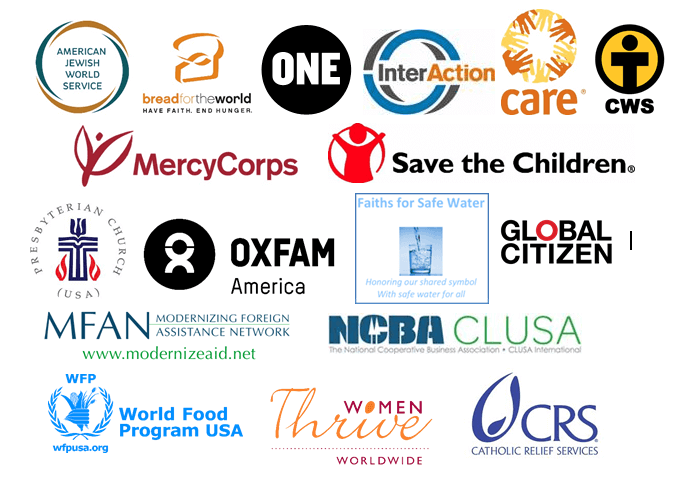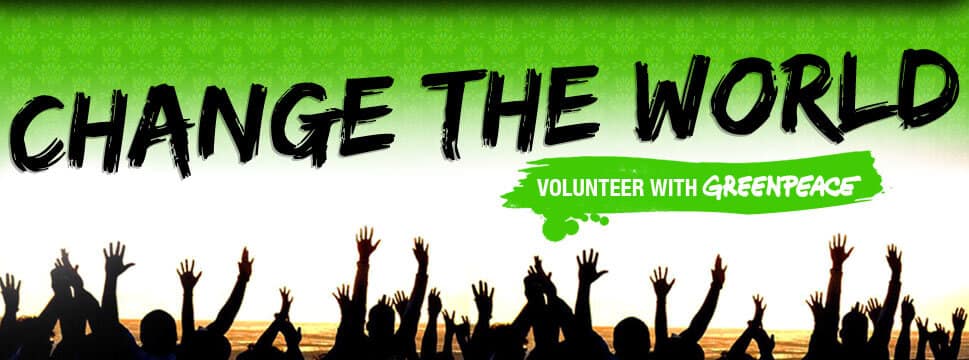 Non-Governmental Organizations (NGOs) are part of the development processes of our country. They are recently in news for various reasons. Hence UPSC has added the role of NGOs, SHGs, various groups and associations, donors, charities, institutional and other stakeholders in UPSC CSE Syllabus for GS Paper 2.
Non-Governmental Organizations (NGOs) are part of the development processes of our country. They are recently in news for various reasons. Hence UPSC has added the role of NGOs, SHGs, various groups and associations, donors, charities, institutional and other stakeholders in UPSC CSE Syllabus for GS Paper 2.
In this post let us see NGOs in detail as per the latest UPSC syllabus, also covering the recent issues associated with them.
Definition of NGOs

The World Bank defines NGOs as private organizations that pursue activities to relieve suffering, promote the interests of the poor, protect the environment, provide basic social services, or undertake community development.
NGOs are legally constituted organizations which operate independently from the Government and are generally considered to be nonstate, nonprofit-oriented groups that pursue purposes of public interest.
Different agencies recognize these groups with different names such as Civil Society Organizations (CSO), charitable organizations, voluntary organizations etc.
History of NGOs in India:
Phase One: The first half of the 19th century in Indian history was marked by the initiation of social reform movements. These reform movements evoked the spirit of devoting life to doing something for the disadvantaged sections of society. It recognized the right of untouchables to education, work of choice and worship, the right of women to education and other social aspects of life. This gave birth to the idea of voluntary organizations for the first time in Indian history.
Phase two: The second half of the 19th century witnessed an unprecedented socio-political awakening that resulted in the blooming of institutionalized reform movements such as Brahmo Samaj, Arya Samaj, Ramakrishna Mission etc. This prompted the Government to enact the Societies Registration Act of 1860.
Phase three (1900-1947): This period marked the successful attempt to channel the voluntary spirit for political action and mass mobilization for the struggle for independence. It influenced the formation of many future voluntary organizations.
Post-Independence period: In the post-independence period, a large number of voluntary organizations have taken part in the process of nation-building. The shift to a neoliberal economic and political agenda facilitated the growth of voluntary organizations at a faster pace.
Registration of NGOs
Indian NGOs mainly come under three segments – Societies, Trusts, and Charitable Companies.
- Societies: Societies have to register under The Societies Registration Act, of 1860.
- Trusts: Private trusts are registered under the central government’s Indian Trusts Act, of 1882, and public ones are registered under the state legislation concerned.
- Charitable companies: They are set up according to section 8 of the Companies Act, 2013. For charitable companies, the compliance requirements are high, as loans and advances are easily available to them compared to a trust or a society. They have to even pay Income tax under the IT Act 1961.
Who regulates NGOs?
There are laws for the regulation of the functioning of NGOs in India. Foreign Contribution Regulation Act(FCRA) and Foreign Exchange Management Act(FEMA Act) are among the most important laws connected with NGOs.
Foreign Contribution Regulation Act(FCRA)
History: Enacted in 1976 by the IndiraGandhi-led Government during the emergency. It regulates all grants, non-Indian gifts, and donations-Indian residents. It also prohibits electoral candidates, political parties, judges, MPs and even cartoonists from accepting foreign contributions. The ostensible justification given for the law was to curb foreign interference in domestic politics.
FCRA (Amendment Act) 2010 highlights:
The amended FCRA Act 2010, barred organizations of a ‘political nature’ from accepting foreign contributions. It also mandated that the organizations receiving foreign funds should renew their licenses every five years.
FCRA and Political parties
- In 2014, the Delhi High Court found that both BJP and Congress were violating the provisions of FCRA (See the FCRA,2010 Amendment) by accepting funds from the Indian Subsidiaries of London-based multinational Vedanta.
- In 2016, the Government made an amendment to FCRA 2010 with retrospective effect, so that contributions from foreign companies (with 50% foreign shareholding) to not-for-profit, political parties and candidates contesting elections, newspapers, government employees etc. does not come under the definition of foreign source.
Impact of Amendment
- It made it legal for political parties to accept foreign aid through Indian subsidiaries.
- This move helped Companies to ease CSR (Corporate Social Responsibility) spending as repetitive consent from the Home Ministry is no longer required for the disbursement of funds by foreign companies.
- NGOs have got access to foreign funds more easily than before except for the prior permission category NGOs.
FCRA and NGOs:
- According to the FCRA, any NGO that accepts foreign contributions has to register with the Home Ministry and such contributions can only be accepted through designated banks.
- The NGO has to report to the central government any foreign contribution within 30 days of its receipt.
- They need to file annual reports with the home ministry. It must also report the amount of foreign contribution, its source, how it was received, the purpose for which it was intended, and the manner in which it was utilized.
- In a case of non-compliance with provisions of the FCRA, the government can penalize an NGO. For example, if these NGOs don’t file annual returns, the government can issue a show-cause notice and subsequently, suspend or cancel their foreign funding licenses.
- In the last two years, licenses of around 20000 NGOs have been cancelled by the central government after they were found violating various provisions of the FCRA act. Hence those NGOs were barred from receiving any foreign funds.
Foreign Exchange Management Act (FEMA)
- There are certain NGOs which are registered under FEMA and they disburse foreign funds to various associations within the country. Nearly 100 international NGOs and associations receive foreign funds through their liaison offices and disburse them to NGOs across India.
- According to the FEMA Act, these NGOs are regulated by the Finance Ministry. For example, International donors such as the Ford Foundation, the U.K.’s Department for International Development etc are registered under FEMA but not the Foreign Contribution Regulation Act (FCRA) 2010. This makes it difficult to monitor the flow of funds effectively.
The role of NGOs in our society
- They act as service contractors, able to work more efficiently and more effectively than government agencies thereby playing an important role in the socio-economic transformation.
- It brings accountability and transparency to governance.
- It acts as a human rights watchdog in the society.
- NGOs act as channels for donors to provide international development funds to low-income countries or developing countries.
Issues with the functioning of NGOs:

- Misappropriation of funds: Many NGOs don’t have sophisticated finance and legal teams, nor do they have the funds to conduct audits.
- The external issue of funding: According to government data a total of 3,068 non-governmental organizations (NGOs) received foreign funding above Rs. 22,000 Cr in 2014-15. It is often said that foreign-funded NGOs try to propagate foreign propaganda to stall developmental projects. Example: Kudankulam Protest.
- Nonaccountable, nontransparent undemocratic functioning: CBI records filed in the Supreme Court show that only 10% of the total registered NGOs under the Societies Registration Act file annual financial statements.
- Money Laundering: Corrupt or unscrupulous NGOs that receive foreign funds may serve as conduits for money laundering.
Way ahead
- A regulatory mechanism to keep a watch on the financial activities of NGOs and voluntary organizations is the need of the hour.
- The government should frame guidelines for their accreditation, the manner in which these organizations should maintain their accounts and the procedure for recovery in case they fail to submit their balance sheets.
- Avoid tussle between the Home Ministry and Finance Ministry by bringing the regulation of NGOs under one head.
- General Financial Rules, 2005 have mandated a regulatory mechanism for the NGOs and a comprehensive law in line with these rules should be framed in no time.
Read: Self-Regulatory Organisations (SROs)
References:
- The Hindu and The Hindu.
- Wikipedia.
- WHO.
- PRSindia.
- Economic Times.
- First Post.
- FinMin.
- FCRAonline.
- Global Policy.
Article contributed by: Sree Resmi S






Hello Team,
As request the could you all do something for UP- PCS notes and syllabus,
References,
Also for RO & ARO same.
Thank you so much
Thanks a lot. These points are Awesome and understandable
It is very important for me
Thankyou sir
Well organised flow of content
Really too helpful for those who are unable to take coaching or r economically weak.
Thanks.
Easily understandable…really nice..
Thanks a trillion..
Clearias
Thanks
Dear all
We have started Activity as a Non Government Organization in Afghanistan by the name of Universal Necessity Relief Organization (UNRO) and execute services and Activity in different sections. We are just work for the prosperity and Dignity of Society and people. This organization is not a part of political and religious bounds.
We are serving country, society and people, in Women Improvement, Agriculture,Gender Equality,Peace and Justice,powerity of Human Healthcare and Good health servicess, Education and Social services. especially we want to prepare trainings of capacity building for women and those children who are poor, street walkers, Vulnerable not have food to eat and are not access to school or education. We are hopeful that can provide programs for them in the parts above named to build their future and could manage their future life normally without any distinction with men and other children and could promote their Economy.
We want to upbringing the Talents and build capacities to build Afghanistan and a modern and literate Society. So want to get funds from different Organizations and donors and follow their programs step by step by high circumstances or quality and doing excellent management. And want to give commodious distribution to women that could get a part in development of Economy and rebuild their country together with men and in other aspect make facilities for their life and not needy for cooperation of the men and others. In this way can promote and help with women and children to promote their lives and can restrain them from violence and it would be opportunity to prepare and provide a good life for themselves.
Side of the civil programs we are doing translate magazines and books in most languages in all over the world.For more.
Note: Now we recieve a grant of vitamins and Albendazole from Vatamin angels to be distributed in Afghanistan but we have not had an enough fund to distribute it there for we requist you to kindly provide us a fund for the distribution of a grant to children under age five and to pregnant women so I hope you will consider on my requistition.
Thank and Regards.